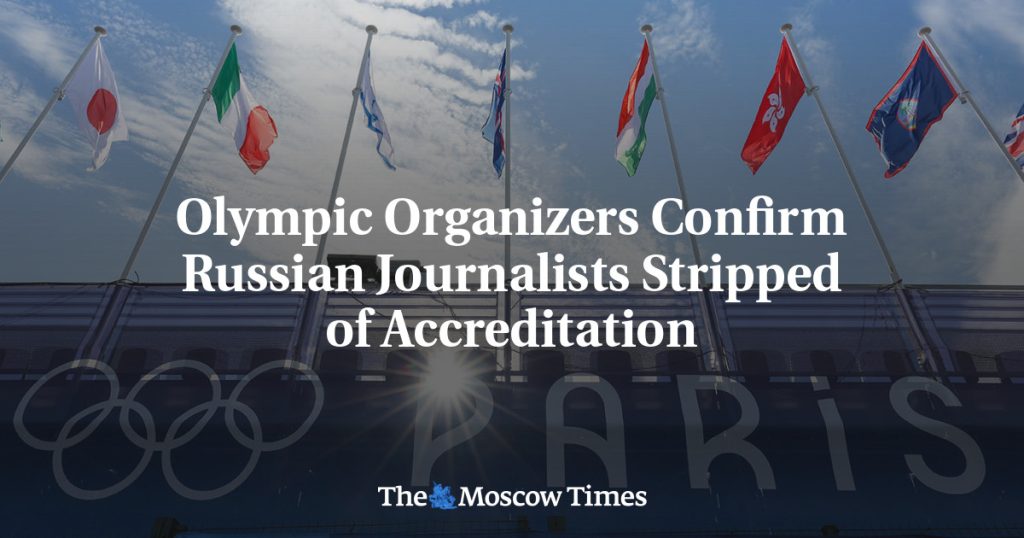The Paris Olympics organizers have canceled the accreditation of some reporters, including journalists from Russia’s state-run TASS news agency. The removal of accreditation was reportedly unexpected and came after the journalists had already arrived in France, received passes, and attended the opening and several events. The Paris 2024 Organizing Committee confirmed the decision but stated that they were not involved in the rationale behind it, as the information was not communicated to them. The exact number of journalists affected is unknown, and the French Interior Ministry declined to comment on the situation.
TASS reported that four of its journalists had their accreditation stripped by the Paris Olympics organizing committee. One of the journalists, Artyom Kuznetsov, has covered several Olympic Games in the past. Team Russia was banned from participating in the 2024 Olympics due to Moscow’s invasion of Ukraine, with only 15 Russian athletes allowed to compete as neutrals. These athletes did not participate in the opening ceremony, which received criticism from Russian officials, with the opening described as a “massive failure” by the foreign ministry spokeswoman Maria Zakharova and a “disgusting spectacle” by former President Dmitry Medvedev.
The opening ceremony of the Paris Olympics was described by TASS as having a number of awkward situations, including the Olympic flag being raised upside-down and viewers leaving early due to pouring rain. Prior to the games, some Russian journalists had their accreditation requests denied, leading to criticism from Zakharova, who accused French President Emmanuel Macron and his government of not respecting the rights of journalists and freedom of speech. This incident highlights tensions between Russia and France in the context of the Olympics and media coverage of the events.
The Moscow Times, an independent news organization in Russia, is facing challenges due to being designated as an “undesirable” organization by the Prosecutor General’s Office. This designation criminalizes their work and puts their staff at risk of prosecution, following an earlier labeling as a “foreign agent.” The Moscow Times continues to strive to provide accurate and unbiased reporting on Russia despite these challenges. They rely on support from readers to continue their work and defend independent journalism in the face of repression from authorities.
Overall, the incidents surrounding the accreditation of journalists covering the Paris Olympics, particularly from Russia’s TASS news agency, reflect tensions between different countries and media outlets. The banning of Team Russia from participating in the games, the criticism of the opening ceremony, and the denial of accreditation to some journalists have led to a strained relationship between Russia and France in the context of the Olympics. The actions taken by the Paris 2024 Organizing Committee and the reactions from Russian officials highlight the complex dynamics at play in the world of international sports and media coverage.


